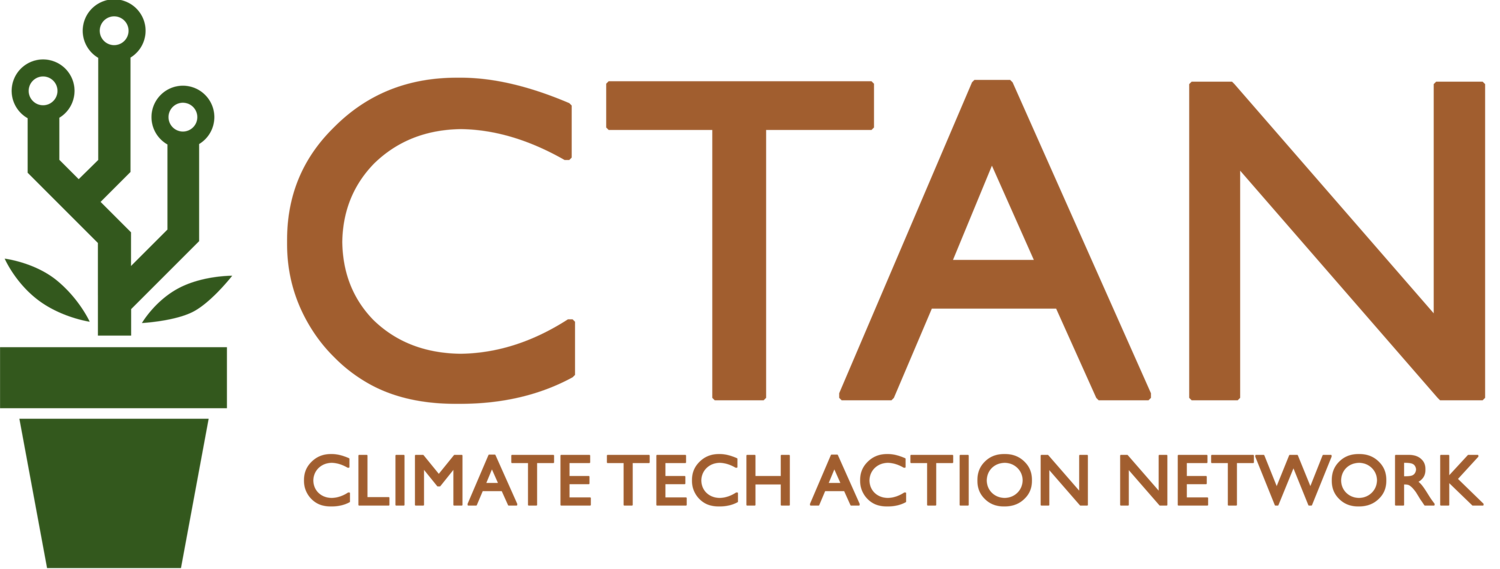Abstracts
Simon and Elliot, cofounders of Fortium Africa, have spent 3 years building the framework necessary to deploy substantial energy projects in some of the most remote parts of Africa. We will address our journey, the maturity of the Kenyan solar industry, some of the barriers to entry, and why our path is different from other groups in the region.
The elite 1% of manufacturers are installing complex systems to run at peak efficiency. But what about the rest? Safi is building the manufacturing operations cloud, a platform that gives any factory team the tools to get to operational excellence quickly and cost-effectively. Imagine the impact on climate change if the world’s 10 million factories get close to peak efficiency, helping both their businesses and the planet.
Food & Ag is a global supply chain: products that begin in the soils of small-holder farmers in India end up on shelves half a world away. It is also one of the most weather dependent industries, making the farmers who drive it among the world's most vulnerable populations to climate change. These vulnerabilities create inventory risk for processors, food safety risks for consumers, and environmentally damaging practices for the planet. Using A.I. to better predict climate risk can inform climate-smart decision making, leading to a more resilient value chain.
Climate stabilization strategies are increasingly focused on methane emission reductions as a key part of reducing climate change. At current emissions rates, methane is producing as much global temperature change in the near term as CO2. Emissions reduction is dependent upon our ability to detect and fix methane leaks over huge geographical areas, and Kairos Aerospace has deployed light-aircraft mounted imaging systems for this purpose. The resulting surveys provide a unique view into the methane emissions from oil and gas. Over the past 2 years, Kairos customers have prevented 18.3 billion cubic feet of methane from entering the atmosphere, the equivalent of taking 2 million cars off the road for a year.
The COVID-19 pandemic showed the world the dire consequences of ignoring science and its predictions of global crises. But the pandemic was just a rehearsal for the climate disasters humanity will face – unless we act now.
Saul Griffith, PhD argues that we can still address the threat of cimate change, but only if we respond with a massive war-time mobilization effort to transform the fossil fuel economy into a fully electrified one, run on wind, solar, and other renewable energy sources. Based on the vast data about energy flows in the U.S. economy that his company, Otherlab, has mapped, Griffith details how to not only save us from climate disaster, but to help us enjoy a cleaner, healthier, and more prosperous future.
As companies strive to achieve carbon-free energy, long term energy storage becomes critical. Unfortunately this is extremely expensive, so it becomes necessary to overbuild renewable systems to minimize the storage need. This results in long periods of time when excess energy is available for hydrogen production. The low capacity factor for this energy exacerbates the effect of already high cost electrolyzers (which use electricity to break water into hydrogen and oxygen), making them non-competitive with high carbon processes. HydroStar has developed electrolyzer stacks from low cost stainless steel -- eliminating the need for purified water and expensive power supplies. Our system is a fraction of the cost of existing solutions and allow for the capture of low cost renewable power.
Geothermal energy has been around for over 100 years, but recently has received unprecedented attention. New technology is making geothermal more accessible than ever, and power purchasers are thinking about a true 100% emission-free grid for the first time. Geothermal power is reliable, carbon free, works 24/7 and can be found all over the world. We are entering the Geothermal Decade, a time when geothermal is poised to scale to unprecedented levels and become the final piece of a carbon-free grid.
